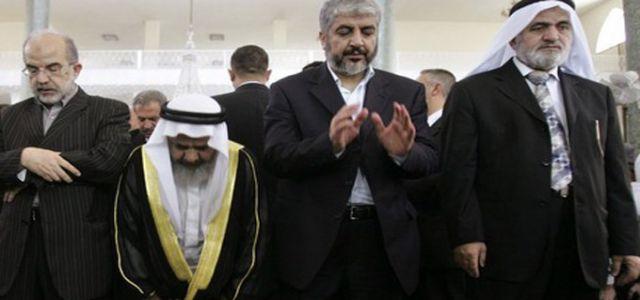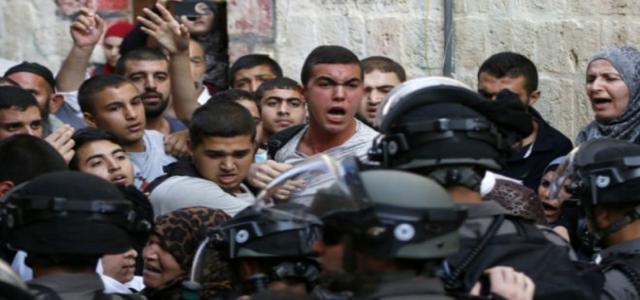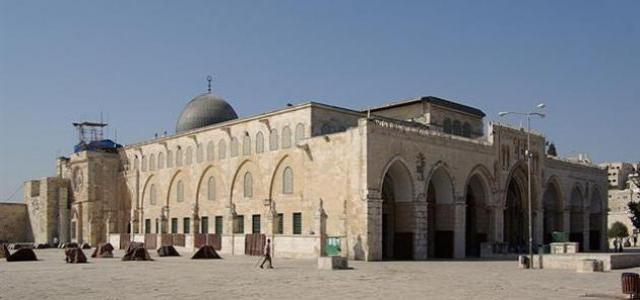- Islamic Movements
- September 29, 2009
- 5 minutes read
Breaking apart: Hamas and Jordan’s Muslim Brotherhood

The relationship between Hamas and the Muslim Brotherhood in Jordan is a high-priority issue for the Islamic movement in Jordan and Palestine as well as for the Jordanian authorities. This is due to the large public space and high position the two movements occupy in both countries. In fact, the Islamic movement in Jordan and Palestine is the object of controversy, questions and inquiries related to the Jordanian-Palestinian relationship in much the same way leftist and national trends were seen in recent years and even decades. It is very difficult to demarcate and delineate between Jordanian and Palestinian issues in the Jordanian context. There are registered and licensed Jordanian political parties that in origin are but an extension of nationalist and leftist Palestinian groups. Even organizational and financial relations among these groups are intricate.
The controversy between Hamas and the Brotherhood demands government and popular attention for two reasons. First, both movements maintain a political approach that contradicts central directives of the regime in Jordan. Second, both movements enjoy widespread and dominant influence in both countries that parties and groups of more limited representation lack.
From the historical point of view, Hamas emerged from the “mother” Muslim Brotherhood. But it has grown rapidly and become a primary actor in the Palestinian arena, thereby yielding it a distinct popularity and influence at the Jordanian and regional levels. This means that the “daughter” is now leading the “mother” in terms of its political, moral, physical, financial and media position.
The current controversy within the Jordanian Muslim Brotherhood has revealed the extent of Hamas’ influence among Brotherhood members. Accusations exchanged among them have revealed that many members of the Political Bureau and the Shura (Advisory) Council of the Islamic Action Front (the political arm of the Muslim Brotherhood) are members of Hamas and follow its directives.
Controversy related to four “administrative offices” that embrace members of both Hamas and the Brotherhood working in the rich Arab Gulf countries has brought to the surface this issue of intertwined “membership.” Attempts to dissolve these bonds between Hamas and the Brotherhood and resolve the controversy have failed. Brotherhood “doves” accuse Hamas of insisting that its representatives in these offices maintain their membership in the Shura Council of the Jordan Brotherhood.
The disagreement between the Brotherhood and Hamas is seen as an extension of a wider controversy that emerged in Jordan at the national level in the aftermath of the “disengagement decision” from the West Bank in 1988. The Islamic movement opposed that decision as “unconstitutional.” This is the rationale for Muslim Brotherhood “hawks” refusing to break with Hamas.
Brotherhood doves who support “disengagement” with Hamas tend to give priority to the “Jordanian agenda” over the Muslim Brotherhood platform. They call for increased Brotherhood participation in local Jordanian affairs and accuse their colleagues, the hawks, of giving priority to the Palestinian agenda over the local Jordanian agenda. The hawks downplay these accusations and insist that the Jordanian-Palestinian relationship is a fait accompli dictated by factors such as geography, history and religion. They see no conflict between the Jordanian and Palestinian agendas.
The controversy within the Brotherhood has a “regional” aspect. Muslim Brothers of Palestinian origin are in general closer to the hawks. They are less enthusiastic regarding “disengagement” with Hamas and between the two banks. Brothers of Jordanian origin tend to give priority to the Jordanian agenda.
For its part, Hamas is at a crossroads: on the one hand, it does not want to support one Brotherhood group against another and seeks to neutralize the conflict. On the other, it does not want its close relationship with the Brotherhood to generate a crisis in its relations – which are in any case not good – with the regime in Jordan. Then too, it also does not wish to give away the trump card of its influence among Muslim Brotherhood members and at the Jordanian national level in general.
A key concern of Jordanian decision-makers that affects their attitude toward Hamas in the Jordanian context is the “special and distinct” relationship between Hamas and Brotherhood members. In addition there is, according to the Jordanian security community, a security issue resulting from attempts by Hamas to store and smuggle arms onto Jordanian soil. And of course there is the obvious political issue: Jordan and Hamas confront one another in two antithetical regional camps, Jordan among the so-called moderates and Hamas in the so-called resistance camp.
Recently, Hamas has been noticeably keen to improve its relations with Amman by taking its distance from local affairs. The head of the Hamas Political Bureau, Khaled Meshaal, in Amman for his father’s funeral several weeks ago, declared that his movement did not want to interfere in Jordanian affairs. He stated that Hamas did not have agents in Jordan and that the movement respected Jordan’s sovereignty and security. He added that Hamas looks forward to maintaining good relations with Jordan.
Still, these messages have not sufficed. Jordanian officials remain reluctant to have any high-level political or security contacts with Hamas since the resignation of Intelligence Department head Major General Mohammed Dhahabi. The growing controversy among Jordanian members of the Brotherhood is likely to continue for a long time and cause more disputes, fragmentation and resignations.



